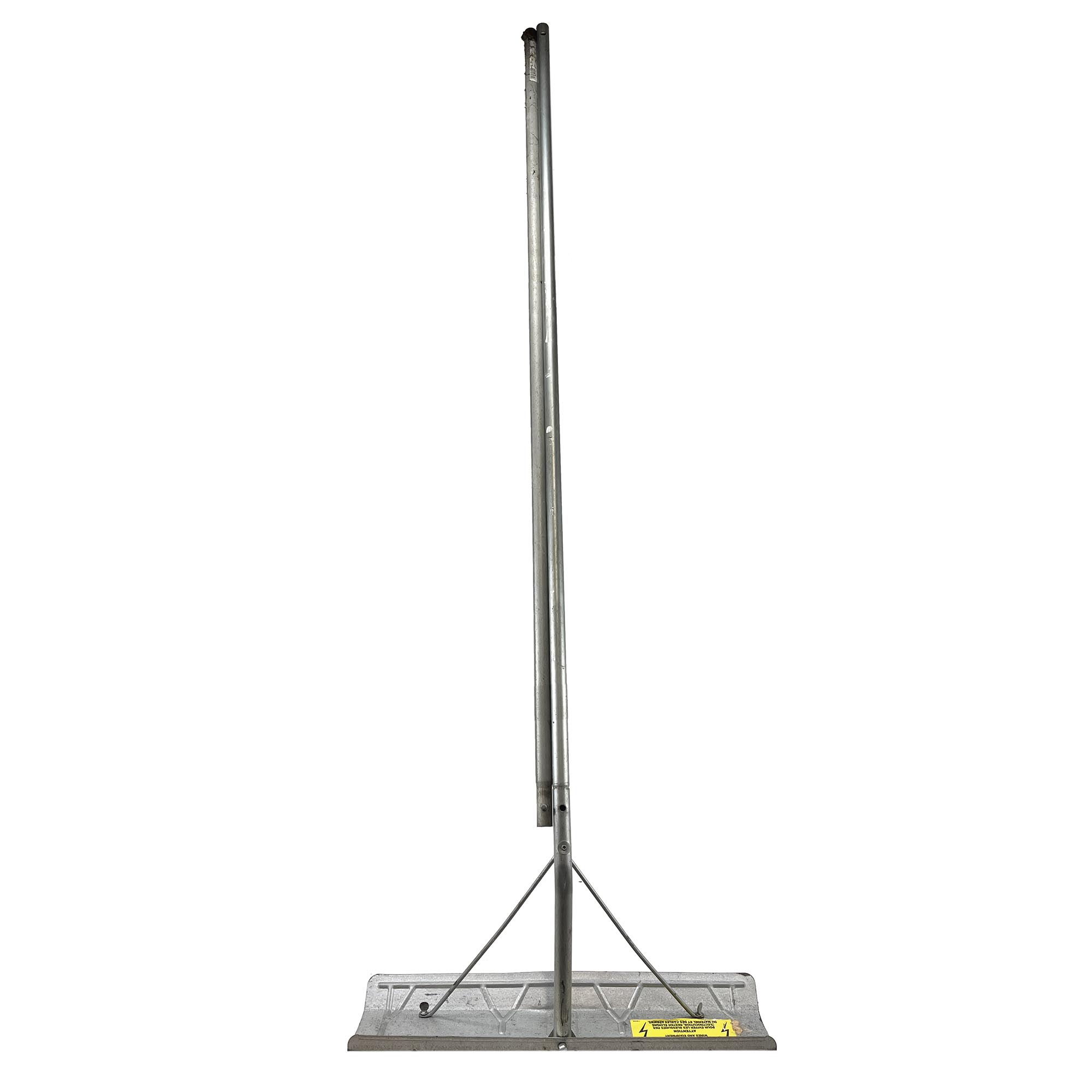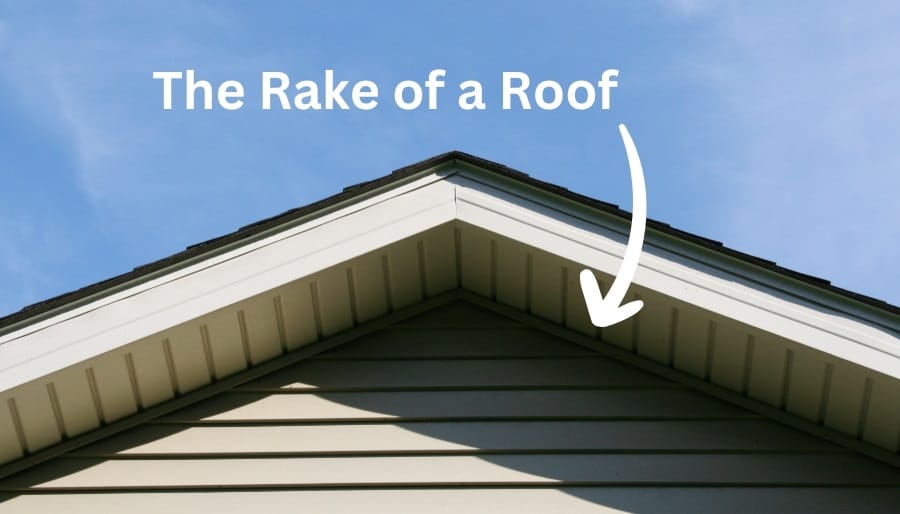Mastering The Rake Of Roof: A Comprehensive Guide For Builders And Homeowners
Hey there, fellow builder or homeowner! If you're diving into the world of roofing, one term that's gonna pop up more than you can imagine is "rake of roof." Now, before your eyes glaze over, let me tell you why this is super important. The rake of a roof isn't just some fancy architectural jargon; it's a key element in ensuring your roof looks great and functions properly. Whether you're building a new home or revamping an old one, understanding the rake of the roof could save you a ton of headaches—and money.
Let's face it, roofs are like the crowning glory of any building. They protect us from the elements, keep our homes cozy, and add that extra aesthetic charm. But, if the rake isn't done right, your roof might end up looking like a lopsided hat. And nobody wants that, right?
In this guide, we're gonna break down everything you need to know about the rake of roof. From what it is, why it matters, to how you can get it just right. So grab your hard hat, and let's get started!
Read also:Farha Khalidi Leak The Untold Story Behind The Viral Sensation
Table of Contents:
- What is the Rake of Roof?
- Why Does the Rake of Roof Matter?
- Types of Roof Rakes
- Calculating the Rake Angle
- Materials for Rake Construction
- Design Considerations for Roof Rakes
- Common Mistakes to Avoid
- Maintenance Tips for Roof Rakes
- Cost Factors to Consider
- Final Thoughts
What is the Rake of Roof?
Alright, let's start with the basics. The rake of roof refers to the sloped edge of a roof that runs from the eaves to the ridge. Think of it as the "border" of your roof, where the roofline meets the wall. It's what gives your roof its distinctive shape and adds that architectural flair.
Now, there are different types of rakes depending on the roof design. Some are simple straight lines, while others can be curved or ornate, depending on the style you're going for. The rake is crucial because it affects not just the appearance but also the structural integrity of the roof.
Key Features of Roof Rakes
Here are a few key features that define the rake of a roof:
- Angle: The rake angle determines how steep or gentle the slope is.
- Material: The materials used for the rake can vary, from wood to metal, depending on the overall roof design.
- Finish: The finish of the rake can be as simple or as elaborate as you want, adding to the overall aesthetic of the building.
Why Does the Rake of Roof Matter?
Now you might be wondering, why does the rake even matter? Well, my friend, the rake plays a vital role in both the function and form of your roof. Let's break it down:
First off, the rake affects how water and snow are shed from the roof. If the rake angle isn't right, you could end up with water pooling or snow sliding off in the wrong direction, which can lead to some serious damage. Not to mention, a poorly designed rake can make your roof look off-balance and ruin the overall appearance of your home.
Read also:Billie Eilish Nudes Leaked The Truth Behind The Controversy
Plus, the rake is a key player in the structural support of the roof. It helps distribute the weight evenly, preventing sagging or collapsing. So yeah, it's kind of a big deal.
Benefits of a Well-Designed Rake
- Improved Water Drainage: Proper rake design ensures water flows off the roof efficiently.
- Enhanced Aesthetics: A well-designed rake can add beauty and character to your home.
- Structural Integrity: A strong rake supports the roof and prevents future issues.
Types of Roof Rakes
Not all roof rakes are created equal. Depending on the style of your roof, you might have different types of rakes. Here are a few common ones:
1. Straight Rake
The straight rake is the most common type, where the edge of the roof slopes evenly from the eaves to the ridge. It's simple, functional, and works well with most roof designs.
2. Curved Rake
If you're looking to add a bit of flair, the curved rake might be for you. This type of rake has a gentle curve, giving the roof a more elegant and sophisticated look.
3. Ornate Rake
For those who want to make a statement, the ornate rake is the way to go. This type features intricate designs and details, often seen in more elaborate architectural styles.
Calculating the Rake Angle
Calculating the rake angle is crucial to getting the right design and function for your roof. The rake angle is determined by several factors, including the pitch of the roof, the materials used, and the climate of the area.
Here's a simple formula to help you calculate the rake angle:
Rake Angle = Arctan (Rise/Run)
Where:
- Rise: The vertical height of the roof.
- Run: The horizontal distance from the edge of the roof to the wall.
Using this formula, you can ensure your rake angle is just right for your specific roof design.
Materials for Rake Construction
When it comes to materials for rake construction, you've got plenty of options. The choice of material will depend on factors like budget, climate, and desired aesthetic. Here are a few popular choices:
- Wood: Classic and versatile, wood is a popular choice for rake construction.
- Metal: Durable and modern, metal rakes are great for areas with harsh weather conditions.
- Vinyl: Low-maintenance and affordable, vinyl is a good option for those on a budget.
Design Considerations for Roof Rakes
Designing the perfect roof rake involves more than just choosing the right angle and material. Here are a few considerations to keep in mind:
1. Climate
The climate of your area will greatly affect your rake design. For example, if you live in an area with heavy snowfall, you'll want a steeper rake angle to help snow slide off easily.
2. Aesthetics
Let's not forget about the look of your rake. Whether you're going for a modern, sleek design or a traditional, rustic vibe, the rake can help bring your vision to life.
3. Maintenance
Consider how easy it will be to maintain your rake. Some materials and designs require more upkeep than others, so choose wisely.
Common Mistakes to Avoid
Even the best-laid plans can go awry if you're not careful. Here are a few common mistakes to avoid when working with roof rakes:
- Incorrect Angle: Make sure your rake angle is spot on to avoid water pooling and other issues.
- Poor Material Choice: Choose materials that are appropriate for your climate and budget.
- Skimping on Design: Don't underestimate the importance of good design. A poorly designed rake can ruin the look of your entire roof.
Maintenance Tips for Roof Rakes
Once your roof rake is installed, it's important to keep it in good condition. Here are a few tips for maintaining your roof rake:
- Regular Inspections: Check your rake regularly for any signs of damage or wear.
- Clean Gutters: Keep gutters clear to prevent water from backing up onto the rake.
- Repairs: Address any issues promptly to prevent further damage.
Cost Factors to Consider
The cost of installing a roof rake can vary widely depending on several factors. Here are a few things to consider:
- Materials: The type of material you choose will greatly affect the cost.
- Design Complexity: More intricate designs will typically cost more.
- Professional Installation: Hiring a professional can add to the cost, but it ensures quality workmanship.
Final Thoughts
So there you have it, folks. The rake of roof might seem like a small detail, but it plays a huge role in the overall success of your roof. By understanding the basics, choosing the right materials, and avoiding common mistakes, you can ensure your roof rake is both functional and beautiful.
Now it's your turn! If you've got any questions or tips of your own, drop them in the comments below. And don't forget to share this article with your friends who might be tackling their own roofing projects. Let's build something amazing together!
Article Recommendations


